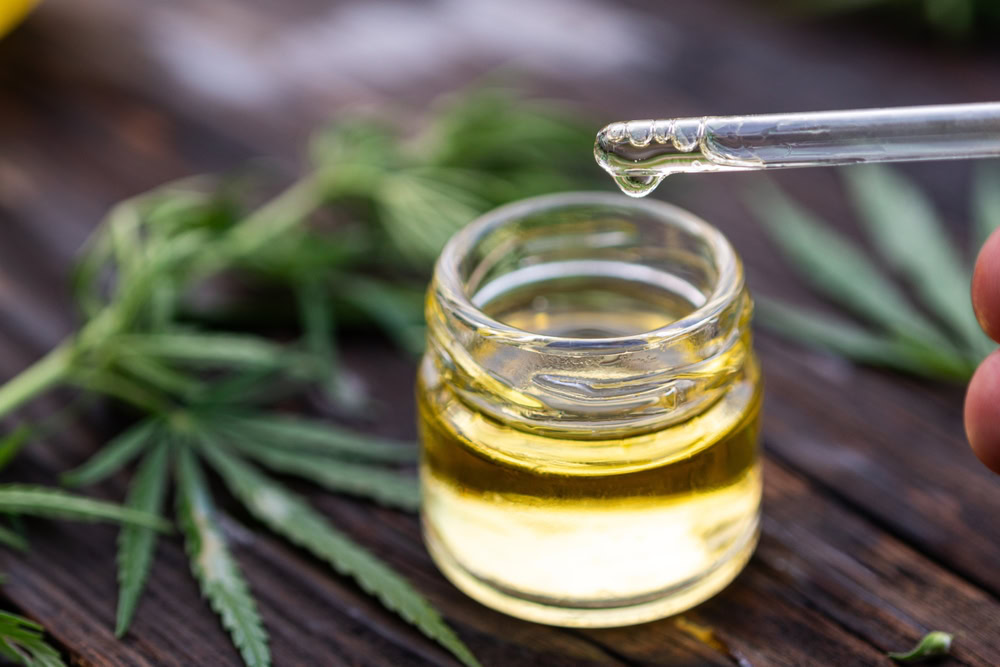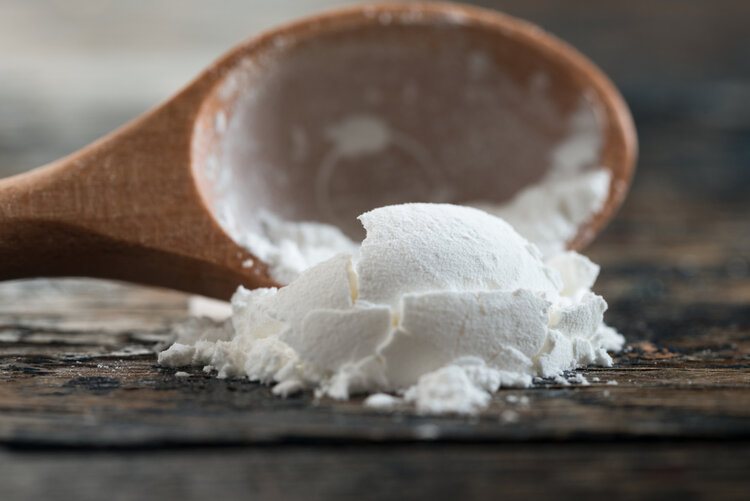VET APPROVED

The information is current and up-to-date in accordance with the latest veterinarian research.
Learn more »Click to Skip Ahead
In the ever-changing world of pharmaceuticals, an interesting development in recent years has been medical and veterinary professions circling back to some of the more natural and ‘alternative’ treatment methods. With the concepts of homeopathy and traditional Chinese medicine being more widely embraced as a ‘whole body’ approach to health, rather than viewed as unfounded ‘witch doctoring’ or ‘hippy nonsense’, the therapeutic options for the management and treatment of injury and disease are greater than ever before.
Psychedelics like psilocybin, LSD, and MDMA are being extensively researched and trialed for their positive effects in managing several mental health conditions, but their previous use (or more accurately, misuse) makes this process difficult. Another compound that is breaking free of its illicit past is cannabidiol, better known as CBD.
The benefits of CBD in the management of numerous health conditions in humans have been well documented and widely debated, with one product recently approved for seizure management in epilepsy patients. It is being increasingly explored in dogs, but research into the effectiveness and safety in equine medicine is still in very early stages.
To help you decide if it’s an option worth exploring for your horse, we will discuss where current research is for the use of CBD in equine medicine.

What Is CBD?
CBD, short for cannabidiol, is one of 540 chemical compounds found in the marijuana, or cannabis plant, Cannabis sativa. The other significant substance extracted from this plant is tetrahydrocannabinol (THC), which is a psychoactive chemical that provides the ‘high’ associated with marijuana. CBD products, by comparison, contain only trace amounts of THC and do not have the effects on the mental state seen with marijuana.
THC and CBD are the most potent of 100 cannabinoids found in the cannabis plant and occur naturally in our bodies. They interact with the endocannabinoid system, a signaling system that has receptors throughout the body. Several human diseases, such as migraine, fibromyalgia, and irritable bowel syndrome, have been linked to a deficiency in endogenous (from within the body) cannabinoids, and the effects of this compound on neurotransmitters have seen it increasingly used in the management of epilepsy.
Although the decriminalization of marijuana in over half of US states, and many countries worldwide, has made access to these products much easier, it is still important that there is a clear distinction between CBD products and THC-containing cannabis. Products labeled as CBD must contain no more than 0.3% THC and are legal throughout all 50 US states, and much of the world.
Hemp is another form of cannabis. It contains relatively few cannabinoids and is sometimes referred to as ‘industrial cannabis’, used in the production of paper and fabric. Supplements containing hemp seed oil may provide some beneficial fatty acids, but very little in terms of endocannabinoid activation.
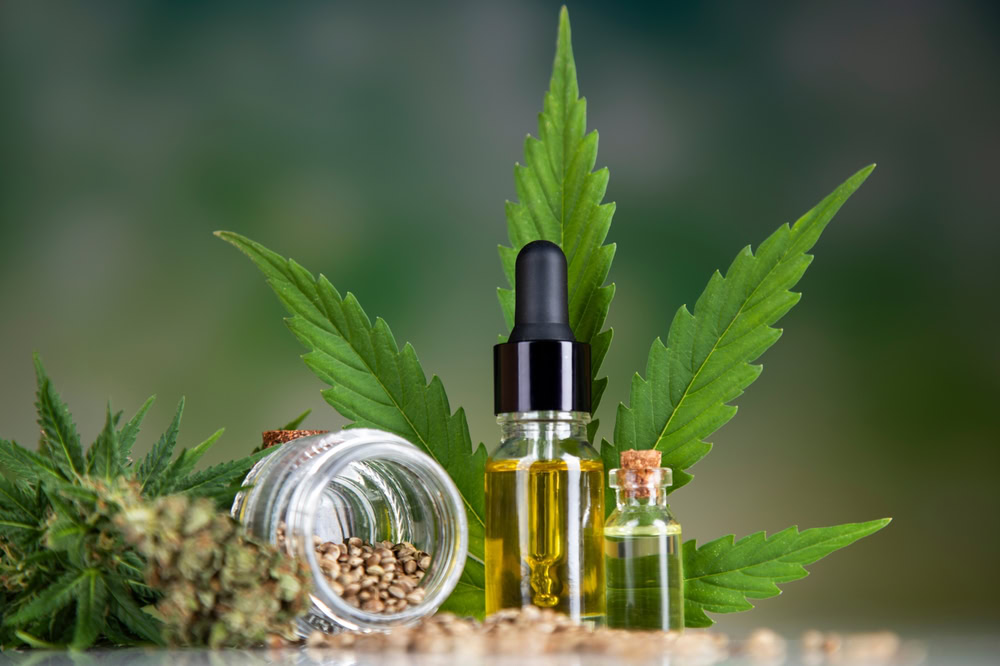
| Simple Breakdown of Cannabis Products | ||
| Cannabidiol | Marijuana | Hemp |
| CBD > THC | THC > CBD | Trace or no CBD or THC |
| Medical | Recreational | Industrial |
CBD Use In Horses
CBD products are widely available for use in horses, with mixed anecdotal reports about effectiveness and safety. There is, however, very little in the way of pharmacological and safety data for equine use. For obvious reasons, products containing more than 0.3% THC (ie. marijuana) are not used in equine medicine.
One of the biggest challenges in studying the therapeutic and adverse effects of CBD in horses is how much their metabolism and digestive system differ from that of humans and canines. Being hindgut fermenters, most of the breakdown and digestion of their food occurs in the intestines, which can significantly impact how chemicals are absorbed and metabolized.
Other challenges encountered when attempting to evaluate the effects of CBD on horses was a significant discrepancy between the listed concentration of cannabidiol in a product, and the levels found in independent laboratory testing, highlighting the potential problems associated with the unregulated supplement industry.
Multiple studies into the pharmacokinetics of cannabidiol have found that CBD levels in the blood and synovial fluid (joint fluid) indicated that this chemical is well metabolized by the body. The horses tested showed no obvious adverse reactions to treatment, however, hypercalcemia (high calcium) and elevated liver enzymes were found in horses kept on CBD therapy for 6 weeks. These levels normalized once the treatment had ended.
At this stage, there is very little in the way of scientific publications regarding the therapeutic benefits seen in horses on CBD, although one study reported a significant improvement in pain scores and quality of life in horses receiving CBD compared to those without it.
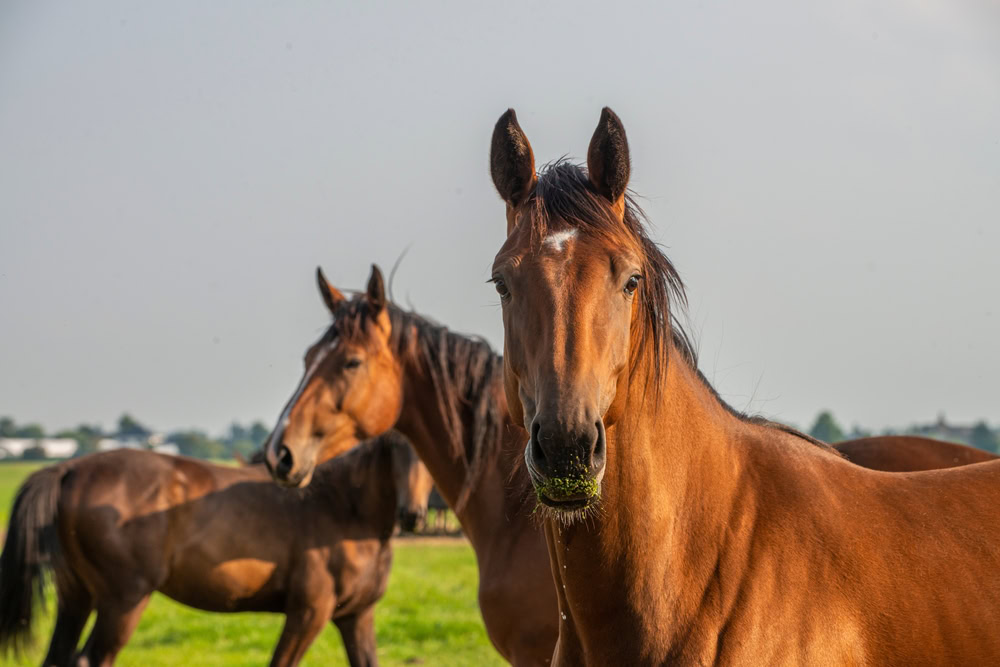
What’s The Verdict?
At the moment, there is simply not enough data to ensure the safety of CBD use in horses, or its effectiveness. Anecdotal reports have indicated that horses may benefit from CBD use in a number of ways, including:
- Pain from arthritis or laminitis
- Anxiety during stall confinement
- Stress during traveling and shows
- Ulcers and leaky gut
- Healing from surgery or injury
However, we still have a long way to go before these claims can be substantiated, and the potential side effects of taking CBD for extended periods need to be explored.
How Is CBD Given?
CBD comes in multiple forms, including drops, pellets, capsules, and topical treatments. A commonly encountered labeling pitfall is for products claiming to be CBD to actually be hemp-based. This isn’t a safety concern – in fact, these products are going to be safer than those containing appreciable levels of CBD – but they are not going to affect the endocannabinoid system, or have any chance of producing the benefits you may be looking for.
Research products before you buy, and look for reported CBD concentrations, preferably with results from an external laboratory. As with most things, the cheaper options out there are more likely to be hemp-derived or contain unreliable CBD levels.
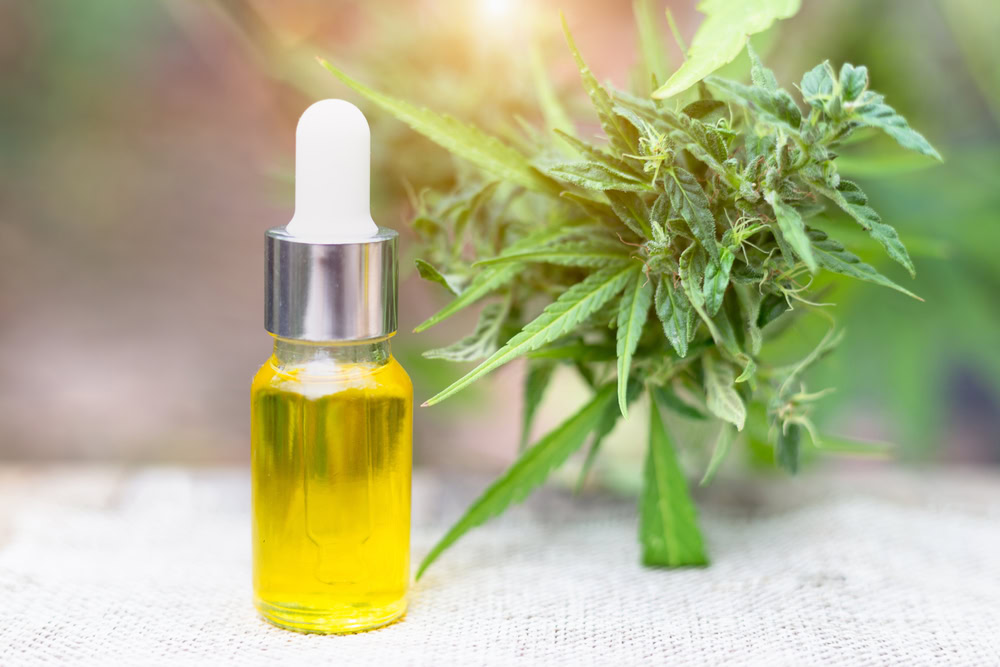
What Dose of CBD Should You Use?
If you are keen to try CBD for your horse, do so with extreme caution, and after speaking to your vet. Much like everything else we know (or don’t know!) about CBD in horses, the appropriate dose range has not been established.
The dose used in the previously discussed study that reported a positive response to CBD therapy was 0.03 mg/kg of CBD (0.014 mg/lb). The study into CBD concentrations in synovial fluid used doses of 0.5 mg/kg and 1.0 mg/kg, which resulted in CBD detection in the joint fluid, but caused potentially worrying blood results.
Doses provided on commercially available products vary considerably in their recommended doses, with some suggesting a ‘trial and error’ approach to finding the right amount for your horse; we would not recommend this.
 Final Thoughts
Final Thoughts
We end on something of an uncertain note, but there are indications that CBD may have a place in managing a number of equine health and behavioral concerns. The research available suggests that improvements to arthritic pain and overall quality of life may be achieved through relatively low doses of CBD, but higher levels may be problematic.
We imagine that the amount of research into this area will increase exponentially over the next few years, so keep an eye out for updates. In the meantime, speak to your vet if you think your horse may benefit from CBD, and be sure to research products carefully.
- https://jcannabisresearch.biomedcentral.com/articles/10.1186/s42238-023-00186-9
- https://www.jpain.org/article/S1526-5900(23)00582-5/abstract
- https://www.ncbi.nlm.nih.gov/books/NBK556048/
- https://pmc.ncbi.nlm.nih.gov/articles/PMC9533147/
- https://pmc.ncbi.nlm.nih.gov/articles/PMC9992179/#B40
- https://www.nccih.nih.gov/health/cannabis-marijuana-and-cannabinoids-what-you-need-to-know
- https://www.health.harvard.edu/blog/cannabidiol-cbd-what-we-know-and-what-we-dont-2018082414476
- https://pmc.ncbi.nlm.nih.gov/articles/PMC9854761/#sec2-animals-13-00245
Featured Image Credit: Melnikov Dmitriy, Shutterstock
